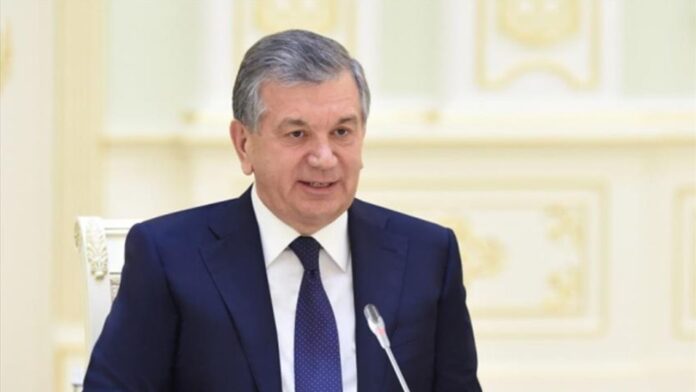President of Uzbekistan Shavkat Mirziyoyev has spearheaded major reforms in Uzbekistan since becoming president in 2016. After decades of isolation and economic stagnation under former president Islam Karimov, his ambitious reform agenda aims to transform Uzbekistan into a more open and prosperous country.
Mirziyoyev came into office promising to reform Uzbekistan’s economy, strengthen the rule of law, and improve relations with neighboring countries. In his first few years as president, he has delivered on many of these pledges, though much work remains to be done.
Boosting the Economy
One of Mirziyoyev’s top priorities has been reforming Uzbekistan’s state-dominated economy and creating a more welcoming environment for foreign trade and investment. Under Karimov, Uzbekistan had a highly restrictive trade regime with high tariffs and tight currency controls. This isolated the economy from global markets and deterred foreign firms from doing business in the country.
Mirziyoyev has steadily dismantled many of these barriers. He lowered tariffs, removed currency controls, and streamlined cumbersome bureaucracy faced by investors. The government also privatized state assets in sectors like energy, agriculture and telecoms. These measures led to a surge in trade and foreign investment. In 2018, Uzbekistan’s foreign trade turnover rose by 21% and foreign direct investment increased four-fold compared to 2016 levels.
The government also implemented market-oriented reforms in the agricultural sector, which employs 25% of Uzbekistan’s workforce. It freed up the sale and pricing of agricultural products, which stimulated production. Mirziyoyev also ordered underutilized land distributed to farmers. As a result, Uzbekistan’s agricultural output has steadily risen under his tenure.
Improving Governance
Mirziyoyev recognized that boosting Uzbekistan’s economy also required strengthening governance, the rule of law and citizens’ rights.
One of his first moves was to reverse Karimov’s highly personalized and centralized political system. Mirziyoyev transferred some decision-making powers to regional governments and opened up political debate in the country. He also relaxed tight media censorship, allowing for more public criticism and debate.
Mirziyoyev boosted reform efforts in the justice system and law enforcement agencies. He increased judicial independence and due process rights for defendants. He also ordered investigations into past cases of torture and corruption. These measures have helped reduce bureaucratic abuses and arbitrary imprisonment that were common under his predecessor.
The government also eased restrictions on civil society groups. Thousands new non-governmental organizations have registered since 2016, able to operate more freely. This uptick in civic activism has allowed greater public participation in shaping reforms.
Improving Regional Relations
Karimov dealt with neighbors confrontational and cut off ties during various disputes. Mirziyoyev has tried to reverse this foreign policy.
One of his first foreign trips abroad was to Turkmenistan, where he spoke of forging “friendly, good neighborly relations.” Uzbekistan has since improved engagement with Central Asian countries, Russia, Turkey, and South Korea.
Mirziyoyev’s most notable outreach has been toward Uzbekistan’s tense relationship with Tajikistan and Kyrgyzstan over water resources. His willingness to negotiate led to new border demarcation and water management agreements.
Relations with Tajikistan have completely transformed under Mirziyoyev after years of impasse. In 2018, Uzbekistan dropped visa requirements for Tajik citizens and the countries upgraded to strategic partnership status. Mirziyoyev even contracted COVID-19 during a state visit to Tajikistan in 2020.
Uzbekistan has also rebuilt ties with Afghanistan, a country the previous regime dealt with warily. Mirziyoyev has called for improving Afghanistan’s transport infrastructure and economic integration.
These regional initiatives have allowed Central Asian countries to increase mutually beneficial trade and infrastructure improvements. Uzbekistan’s shifting foreign policy has also opened up new investment and export opportunities with Asian and European countries.
Challenges Remain
While President Mirziyoyev has pursued an ambitious reform agenda, Uzbekistan still has a long path toward democratization and rule of law.
The political system continues to be dominated by a strong, central presidency without viable opposition. Mirziyoyev has jailed dissidents and restricted civil liberties when feeling threatened.оздатель
Nepotism and corruption are still rampant. The government has punished some officials for graft under Mirziyoyev. However, true accountability remains elusive, especially for elite families tied to the Karimov era.
Despite Mirziyoyev’s pledge to improve the justice system, law enforcement agencies are still marred by systematic torture and lack of due process. Forced labor continues to plague parts of Uzbekistan’s economy, particularly the cotton harvest.
Nevertheless, most observers agree that Uzbekistan is moving in the right direction under Mirziyoyev. After decades of isolation, the country is more open and making steady strides toward reform. The process has been bumpy and incomplete. But Mirziyoyev has already transformed the nation far more than expected when he first took office.
With five years left in his presidential term, the direction Mirziyoyev steers Uzbekistan next will likely set the country’s course for decades to come. His reform agenda has raised the aspirations of Uzbekistan’s 35 million citizens longing for a more just and prosperous society. Mirziyoyev has the historic opportunity to deliver this brighter future if he continues down the path of openness and reform.









